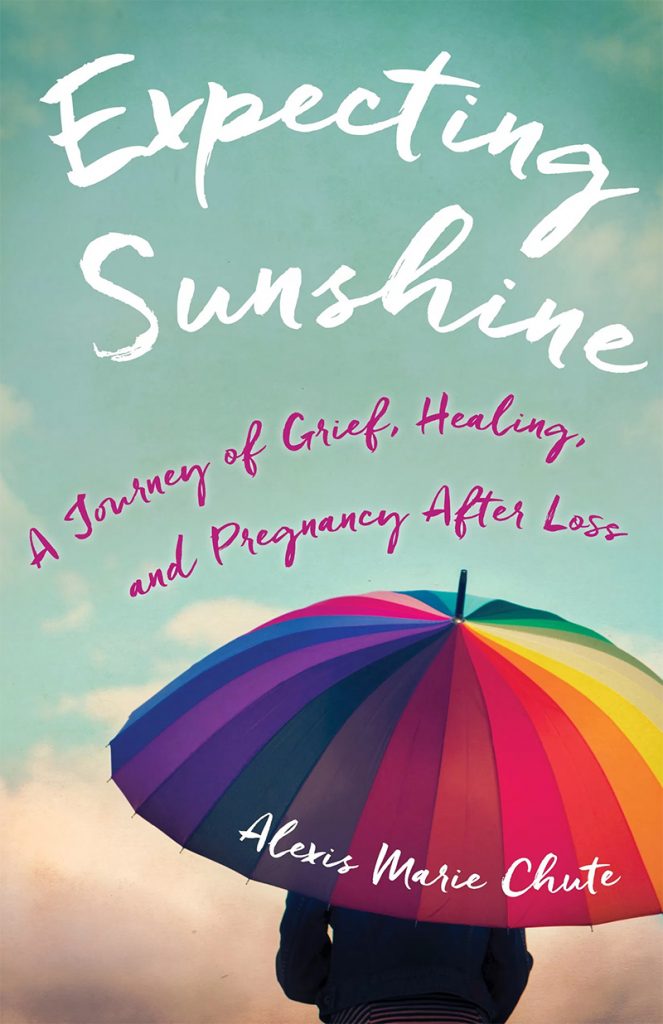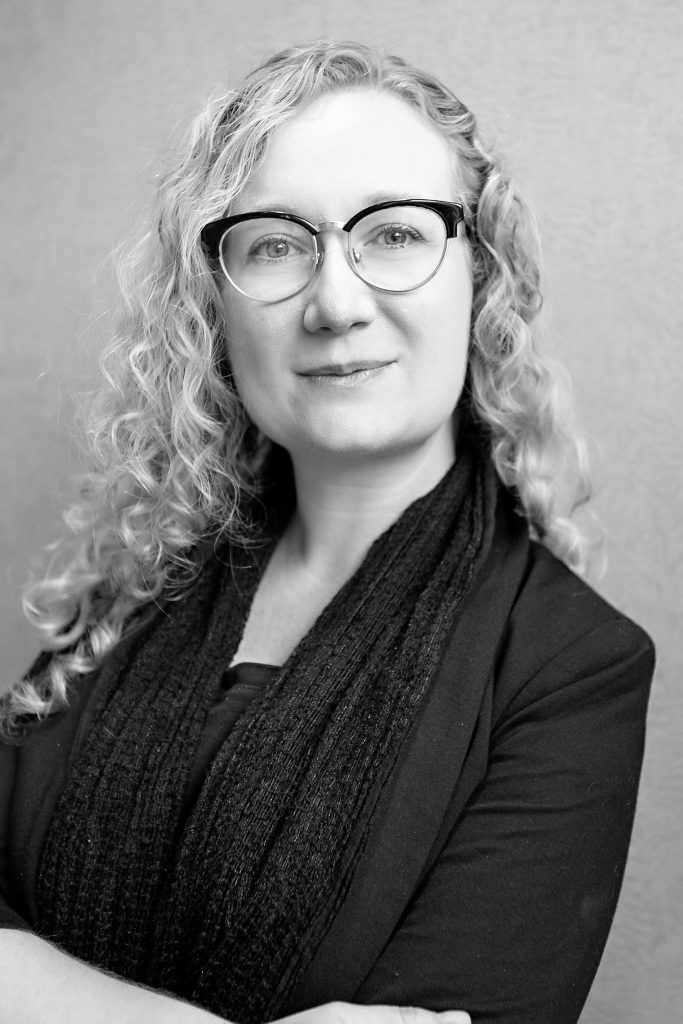Life After Baby Loss

A heart-to-heart with Alexis Marie Chute about her new memoir, Expecting Sunshine
Giddy with anticipation during her second pregnancy, Alexis Marie Chute decided to get one of those 3D ultrasounds at the mall. You know, just for fun. She was already 25 weeks along and her standard medical scan had gone off without a hitch.
In her new memoir Expecting Sunshine: A Journey of Grief, Healing and Pregnancy After Loss, Chute describes the pivotal moment when she realized this would not be another normal pregnancy.
My mind triggered that day: “Hello there, hi,” Dr. Stilles had said, entering the patient room swiftly. He seemed distracted as we went through the normal routine, his eyes never meeting mine. His responses were curt and to the point. “Weight, good. Blood pressure, yep. You’re measuring about twenty-six weeks now. Okay, okay.” His demeanor shifted as he closed my file and tucked it under his arm. He cracked his knuckles. “Baby Before Birth called, Alexis Marie,” he said slowly. That’s strange, I thought; they never phoned Dr. Stilles after I had pictures taken of Hannah.
“I didn’t speak with them, ” Dr. Stilles continued, raising his eyebrows and wiping a hand through his thinning hair as he spoke. “But in their message they said that Baby has an irregular heartbeat.”
I couldn’t respond right away, although my lips moved in search of words. “An irregular heartbeat,” I repeated. “An irregular heartbeat? That’s something we can fix, right?” Dr. Stilles did not respond.
But it was not something they could fix. Chute’s baby had a genetic condition called Tuberous Sclerosis and a large tumour had formed on his heart. He would not survive.
What came next was a sort of suspended grieving period in which Alexis and her husband prepared for the birth and imminent death of their son, Zachary. This was followed by what Chute calls her year of distraction during which she kept her grief at arms length by staying as busy as possible. And then, finally, a healing period after she found out she was expecting a baby yet again.
I sat down with Alexis Marie Chute this summer to talk about Expecting Sunshine; and about grief and hope and marriage and finding your way forward.

I wanted to ask you about your art. It seems like Zachary’s been a muse.
That’s a neat way to say it. I like that!
I call my first year after Zachary was born my year of distraction. In that time I didn’t make personal art and I didn’t write about my loss. It was only toward the end of that time that I started to blog about life after the loss of a child. I recognized that I got stuck in my grief and I needed to break out of that and express myself. Originally, after my loss, I felt that personal self-expression was dangerous because I felt this pressure from society. We’d had the memorial, I had Hannah, I was expected to go to the play groups and I was expected to make the healthy snacks and have it together and play with my kid on the floor.
So you felt like the expectation was you should just cheerfully move on with your life.
Yes, and It was only when I got pregnant again that I was like, I can’t distract myself for the rest of my life. That’s a horrible way to live. And that’s when I got back into my art and back into expressing myself—which was hard!
People say, Oh, writing the book was so therapeutic, right? On the one hand, yes, on the other hand you’re letting out all these things that are so deeply personal and private. And expressing all of my emotions. We often keep our ugly side in and people who read this book will see that I’m a horribly flawed human being. I am sometimes mean to my husband, I don’t say or do the perfect things or feel the way I’m supposed to feel according to society.
What compelled you to write such a difficult book?
I began to figure out that people need to hear these stories and to have the opportunity to share what they’ve been through. I can learn something from them and they can learn something from me, so it becomes this beautiful healing experience, storytelling.
I also felt that I was compelled to write this book because nobody was talking about pregnancy after loss. In our culture, we’re starting to talk more about miscarriage and stillbirth which is wonderful, but often (and I experienced this with my own family) as soon I said I’m pregnant again everybody was like phew! Okay, she’s moving on; we can stop walking on eggshells.
Was Zachary’s death hard on your marriage?
Absolutely, there was a strain on the marriage. My husband grieved in what looks like from the outside as non-grief. So he went back to work straight away, and he left before we were up in the mornings. He worked at a rural school, and then he coached volleyball up there, so he didn’t get home until nine or nine-thirty at night. And then he would just talk about his day and it was like he didn’t even see me, you know.
I’ll give you one spoiler from the book: he was so disassociated from our loss that he didn’t really cognizantly realize I was pregnant, and that we were going to have a baby, until I was thirty-five weeks pregnant. It was just to protect himself, you know.
I had this book written and was editing it long before he and I had worked out our stuff. I was in my master’s for writing when one of my teachers said, you need to rewrite this chapter from your husband’s perspective. I was like, oh, hell no. I was angry at him; I didn’t want to see it from his perspective. I didn’t feel like he was grieving, I didn’t feel like he supported me. I felt like he was M.I.A.
And so I put if off and finally at the end of the term I had to do it. So I was on a car trip with him from Calgary to Edmonton, just the two of us, and I asked him to tell me what it was like from his perspective. We wound up talking about this for a full three hours, and I feel like that conversation and rewriting it through his eyes saved our marriage because up until that point I did not appreciate the deep undertow of his grief.
You had one child before Zachary’s pregnancy and have two more since. Do people assume you’ve filled up the void that Zachary left?
You can never replace. I have other children, but they don’t replace Zachary. He’s still a presence in our family. I do talk about Zachary with my living kids and I do feel like that has helped them to be more empathetic children.
I have a friend who had a late miscarriage and texted me a picture of her baby who was only as long as her hand. But you could see all the little fingers and toes and even the eyelashes. So I debated whether I should show this picture to my oldest daughter, Hannah, who was sitting right beside me. My friend’s oldest child is the same age as Hannah and they’re friends. I decided I needed to be open about it, so I did show Hannah that picture.
The first words out of her mouth were, “Now their family is just like us.”
















